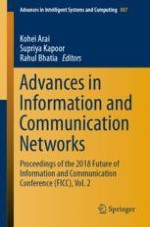2019 | OriginalPaper | Buchkapitel
When Siri Knows How You Feel: Study of Machine Learning in Automatic Sentiment Recognition from Human Speech
verfasst von : L. Zhang, E. Y. K. Ng
Erschienen in: Advances in Information and Communication Networks
Aktivieren Sie unsere intelligente Suche, um passende Fachinhalte oder Patente zu finden.
Wählen Sie Textabschnitte aus um mit Künstlicher Intelligenz passenden Patente zu finden. powered by
Markieren Sie Textabschnitte, um KI-gestützt weitere passende Inhalte zu finden. powered by
